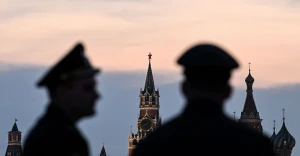
Hungary will block Ukraine's NATO membership due to 'problems' with Hungarian schools – Orban
Hungarian Prime Minister Viktor Orban has said that his country will not recognize Ukraine's intention to join the Alliance until the laws that "restrict" the rights of the Hungarian minority are abolished
He said this in a speech to the Magyar Nemzet newspaper.
"We have seen that if Ukraine does not abandon its intention to join NATO, it is only a matter of time before we have to reckon with another conflict that will also threaten energy supplies from Russia, and so we have raised our relations in Central Asia to a friendly level, so the Russian-Ukrainian war and the Nord Stream terrorist attack have not posed an unsolvable challenge to our energy supply," Orban said.
At the same time, the Hungarian prime minister noted that Ukrainian citizens have been "persecuting" Hungarian schools in Zakarpattia region for years.
"Hungary will not support Ukraine's membership in NATO until the previous laws are restored," he added.
In addition, Orban mentioned the crisis over EU imports of agricultural products from Ukraine, calling on Brussels not to betray Hungary and to return the restrictions that were in place until September 15.
The law on national minorities in Ukraine
The Law on National Minorities (Communities) was adopted by the Verkhovna Rada in December 2022 and came into force in March 2023. This law is among the seven recommendations of the European Commission that Ukraine must implement in order to continue its progress towards the EU.
Romanian President Klaus Iohannis called on Volodymyr Zelenskyy to review the law. The President of Ukraine promised to take Bucharest's wishes into account. Hungary has also repeatedly returned to this topic, speaking about the infringement of the rights of Transcarpathian Hungarians.
In February, the PACE, on the Hungarian-Romanian initiative, appealed to the Venice Commission over the rights of national minorities in Ukraine.
In June 2023, the Venice Commission criticized the law on national minorities.
On September 12, Deputy Prime Minister Olha Stefanishyna said that Kyiv was negotiating EU accession with Hungary and Romania, which have expressed reservations about the rights of their ethnic minorities in Ukraine.
On September 21, the Ukrainian parliament passed a draft law on national minorities, which is one of the requirements for starting negotiations on Ukraine's membership in the EU.
The document provides for state guarantees of free textbooks (including electronic ones) for students of complete general secondary education belonging to national minorities (communities) in accordance with the procedure established by the government.
It also provides for the possibility of using the languages of national minorities (communities) in advertising, during public, cultural, artistic, entertainment and spectacular events, emergency assistance, etc.
Ukraine's accession to the EU
Ukraine applied for EU membership on 28 February 2022 during the Russian-Ukrainian war.
On June 23, 2022, Ukraine was granted candidate status for EU membership.
In May, Ukraine’s Prime Minister Denys Shmyhal said that Ukraine should be ready to join the EU in two years - the country expects to receive a political decision to start accession negotiations this year.
According to Espreso's sources, the European Parliament is considering the possibility of starting negotiations on Ukraine's accession to the EU this fall.
However, on August 17, Deputy Prime Minister for European and Euro-Atlantic Integration Olha Stefanishyna said that Ukraine would not be able to implement all 7 EU recommendations by October, as these are changes that have been implemented over the years.
Maria Mezentseva, Deputy Head of the Verkhovna Rada Committee on Ukraine's Integration with the EU, Head of the Permanent Delegation to PACE, noted that it is necessary to wait for the October report of the European Commission on the implementation of 7 EU recommendations by Ukraine
On August 28, European Council President Charles Michel said that the European Union should be ready to accept new member states by 2030. The EU High Representative for Foreign Affairs and Security Policy, Josep Borrell, expressed support for setting a tentative ‘time target’ for new members to join the EU.
On September 8, Lithuanian President Gitanas Nausėda said it was important that negotiations on Ukraine's accession to the EU begin by the end of this year. A clear European perspective will inspire Ukrainians on the battlefield.
- News















































